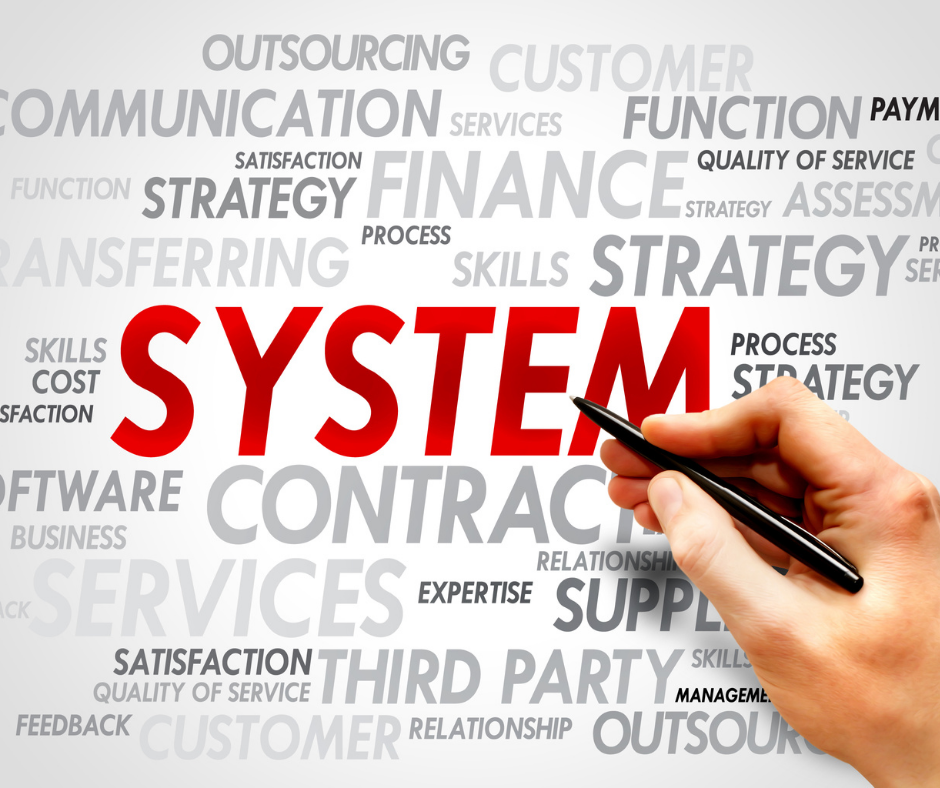How A Virtual Assistant Can Keep Your Projects On Track
How A Virtual Assistant Can Keep Your Projects On Track

Understanding The Role Of A Virtual Assistant In Project Management
Virtual assistants have increasingly become essential in project management, playing a dynamic role that extends far beyond traditional administrative tasks. They offer a versatile range of services that can effectively streamline operations and ensure that projects stay on track. A virtual assistant's primary objective in project management is to assist in organizing, coordinating, and executing tasks that contribute to the seamless progress of a project.
They often begin by helping project managers with scheduling and calendar management, arranging meetings, and sending reminders to keep everyone aligned with the project timeline. This ensures that no deadlines are missed and that all team members are aware of their responsibilities.
Moreover, virtual assistants can handle communication by managing emails, setting up conference calls, and even acting as a liaison between team members. This allows project managers to focus on high-level strategic decisions while the virtual assistant ensures that information flows smoothly. They are also skilled at using various project management tools and software, which enables them to track project progress, update files, and maintain records, providing project managers with real-time insights into the status of different project phases.
By taking care of these operational tasks, virtual assistants help mitigate the risks of discrepancies and disorganization, which are common obstacles in project management.
Additionally, virtual assistants can be instrumental in conducting research and preparing reports, allowing project managers to make informed decisions. Their ability to adapt to different tasks makes them invaluable, as they can swiftly shift focus to whatever aspect of the project needs attention. Through their organizational skills and ability to handle multiple concurrent responsibilities, virtual assistants significantly contribute to keeping projects on course and achieving successful outcomes.
Delegating Tasks Effectively To Your Virtual Assistant
Delegating tasks effectively to your virtual assistant is a crucial strategy for maintaining project momentum and achieving successful outcomes. To start, clear communication is paramount. Clearly articulate the overall goals of the project and how each delegated task contributes to these objectives. Providing context will not only empower your assistant to make informed decisions but also foster a sense of ownership over the work.
It is essential to establish priorities, explaining which tasks are urgent and which can be completed at a later date. This prioritization helps your assistant manage their workload efficiently and ensures that critical tasks receive appropriate attention.
Offering detailed instructions and setting clear expectations are vital components of effective delegation. Explain the steps involved in a task, the resources available, and any deadlines that must be met. While detailed guidance is helpful, allow room for your assistant's input and creativity, as they may bring fresh perspectives and solutions to the table. Regular check-ins are beneficial to track progress, address any questions, and provide feedback.
These meetings can be brief but should be consistent, fostering an environment of open communication where your virtual assistant feels comfortable discussing challenges and successes.
Trusting your virtual assistant is crucial for a fruitful working relationship. Resist the urge to micromanage and instead empower them to take ownership of their work, which can lead to increased productivity and encouragement. At the same time, providing appropriate tools and resources is essential to enable your assistant to perform tasks effectively. Finally, acknowledge and celebrate accomplishments. Recognizing your assistant’s contributions not only boosts morale but also reinforces a collaborative atmosphere where both parties are committed to driving project success.
With these strategies, your virtual assistant becomes an invaluable asset in keeping your projects on track.
Utilizing Technology Tools To Enhance Virtual Collaboration
In today's fast-paced digital landscape, effectively utilizing technology tools is essential for virtual assistants to enhance collaboration and keep projects on track. With teams often dispersed across different locations, relying on technology fosters seamless communication and coordination. Virtual assistants, equipped with the right tools, serve as the linchpin connecting team members and ensuring that project goals remain aligned. One of the primary ways they achieve this is through project management software, which organizes tasks, sets deadlines, and assigns responsibilities.
Tools like Asana, Trello, or Monday.com facilitate real-time updates and provide a visual overview of progress, allowing virtual assistants to monitor timelines and manage workloads efficiently.
Moreover, communication platforms such as Slack or Microsoft Teams allow for instant messaging and video conferencing, fostering a sense of presence among remote team members. Virtual assistants ensure that communication channels are effectively utilized, scheduling regular check-ins and facilitating virtual meetings to keep everyone informed and engaged. These platforms also integrate with various apps, enabling the sharing of important documents, files, and data seamlessly, which virtual assistants can manage to ensure easy access and organization.
Furthermore, virtual assistants can employ cloud-based storage solutions like Google Drive or Dropbox to maintain a central repository for all project-related documents. This ensures that team members have access to the latest versions of files from anywhere, reducing bottlenecks and enhancing collaboration. By automating routine tasks with tools like Zapier or using AI-driven insights, virtual assistants can focus on more strategic aspects of project management.
In leveraging these technological tools, virtual assistants not only enhance virtual collaboration but also empower teams to achieve their objectives more efficiently, ultimately driving project success in the digital age.
Streamlining Communication For Improved Project Tracking
Effective communication is the foundation of successful project management, and virtual assistants play a pivotal role in streamlining communication processes to improve project tracking. Leveraging artificial intelligence and machine learning, virtual assistants can facilitate seamless interactions between team members, stakeholders, and project managers, ensuring that everyone stays informed and engaged.
Virtual assistants can be integrated into various communication platforms, such as email, messaging apps, and project management tools, to provide real-time updates and reminders about project timelines, tasks, and deadlines. By automating routine communication tasks, virtual assistants free up team members to focus on more strategic activities, enhancing overall productivity. For instance, they can automatically compile and disseminate weekly progress reports, alerting team members to any potential bottlenecks or deviations from the project plan.
Virtual assistants also serve as centralized repositories of project information, ensuring that data is easily accessible and organized. They can quickly retrieve documents, previous correspondence, and critical records, allowing team members to access necessary information with minimal effort. This reduces the time spent searching for relevant data and files, allowing teams to concentrate on more important tasks and make informed decisions promptly.
Moreover, virtual assistants can facilitate more effective collaboration between remote teams by bridging communication gaps. Through real-time translation and language processing capabilities, they eliminate language barriers, enabling smooth interactions among international team members. In addition, they can schedule meetings across different time zones, ensuring optimal participation and engagement.
Lastly, by fostering transparent and consistent communication, virtual assistants help build trust among team members. This trust encourages open dialogue, prompt issue resolution, and enhanced accountability. By seamlessly integrating into everyday workflows, virtual assistants ensure that projects stay on track through efficient, reliable, and streamlined communication, ultimately leading to more successful project outcomes.
Monitoring Progress And Adjusting Strategies With Your Virtual Assistant
Monitoring progress and adjusting strategies are pivotal aspects of effective project management. A virtual assistant can be an invaluable ally in this regard, offering comprehensive support that ensures your projects stay on course. By integrating seamless tracking systems and utilizing analytical tools, a virtual assistant can keep you continually informed of your project's progression. They can help you establish key performance indicators and set up regular updates to track these metrics, ensuring that any deviation from the planned trajectory is identified promptly.
Once data is collected, a virtual assistant can assist in interpreting it to generate meaningful insights. These insights help in understanding what is working well and what requires modification. By maintaining a constant flow of information, your virtual assistant enables real-time decision-making, allowing for swift adjustments to strategies as needed. This agility minimizes the risk of falling behind schedule or missing critical milestones.
Additionally, a virtual assistant can assist in coordinating with team members to implement necessary changes. By organizing meetings, scheduling follow-ups, and ensuring all stakeholders are informed of strategy adjustments, a virtual assistant streamlines communication. Their ability to relay information swiftly ensures that everyone remains aligned with the project’s goals.
Furthermore, your virtual assistant can perform competitive analysis and market research to inform strategy adjustments. By keeping an eye on industry trends and competitors, they can offer suggestions on how to stay ahead or pivot strategies to better align with market demands.
Ultimately, the role of a virtual assistant in monitoring progress and adjusting strategies lies in their ability to provide timely, data-driven insights, coordinating adjustments effectively, and ensuring your projects remain aligned with your objectives, thereby fostering success and efficiency.
Overcoming Common Challenges In Virtual Project Management
Virtual project management introduces a unique set of challenges that can impede the progress and success of projects if not handled effectively. One of the most common challenges is maintaining clear and consistent communication. In a virtual environment, team members may be spread across different time zones, which can lead to misunderstandings and delays. A virtual assistant can play a critical role in overcoming this challenge by scheduling regular check-ins and ensuring that all team members are updated on crucial developments.
They can facilitate communication by using collaborative tools and platforms that centralize discussions and documents.
Another challenge in virtual project management is tracking the progress of various tasks and ensuring deadlines are met. Without physical oversight, tasks may fall through the cracks, leading to inefficiencies and increased workload towards project deadlines. A virtual assistant can help mitigate this by implementing a robust project management system that assigns, tracks, and updates the status of tasks. They can send reminders to team members and provide reports on the project’s overall progress, ensuring everyone stays on the same page.
Additionally, fostering a sense of team cohesion and engagement can be more difficult in a virtual setting. Isolation can decrease motivation and enthusiasm among team members. Virtual assistants can aid in creating a sense of community by organizing virtual team-building activities and encouraging informal interactions among team members. Lastly, technical difficulties can often disrupt virtual project management. Virtual assistants can provide technical support and ensure that all team members have access to the necessary tools and resources.
By addressing these common challenges, a virtual assistant can significantly enhance the effectiveness of virtual project management, ensuring projects stay on track and facilitating a seamless workflow.
Leveraging Analytics And Insights For Continuous Improvement
Virtual assistants are increasingly becoming invaluable tools for managing and maintaining the progress of various projects. By harnessing advanced analytics and insights, these digital aides can provide continuous improvement to ensure projects remain on track. Virtual assistants leverage data analytics to monitor key performance indicators, deadlines, and resource allocation in real time. By doing so, they generate insights into the current state of a project and highlight areas that may require attention or adjustment.
Through the use of predictive analytics, virtual assistants can anticipate potential bottlenecks or challenges before they arise, offering proactive solutions or adjustments to the project timeline or workflow. This foresight allows project managers to make informed decisions and prevent issues that could derail progress. Additionally, virtual assistants can gather data from multiple sources, providing a comprehensive overview of the project’s status across all teams and departments involved.
This integration ensures that everyone is aligned and informed, reducing the chances of miscommunication or oversight.
Machine learning capabilities enable virtual assistants to continuously learn from past projects and experiences, allowing them to refine their suggestions and actions over time. These intelligent systems can analyze historical data to identify patterns and trends, offering insights that can lead to more efficient processes and strategies. By providing data-driven recommendations for resource optimization and task prioritization, virtual assistants facilitate continuous improvement in project management.
Moreover, the ability to visualize data through intuitive dashboards and reports offers project managers the clarity needed to assess performance and progress effectively. This transparency ensures that stakeholders are kept in the loop and can provide timely feedback, fostering a collaborative environment focused on achieving project goals. Overall, leveraging analytics and insights through virtual assistants empowers teams to maintain a trajectory of success through continuous refinement and optimization of their efforts.
Ready to Simplify Your Project Management?
Delegate tasks to a virtual assistant and keep your projects on track effortlessly.
Get started today!
Click here to create your online portal.











